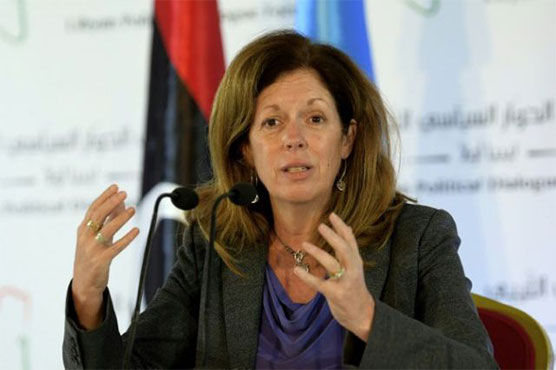Libya talks end without naming govt but UN vows to continue

Libya has been riven by conflict since the 2011 NATO-backed uprising.
GAMMARTH (AFP) - UN-led talks aimed at appointing an executive to help lead Libya out of a decade of conflict ended Sunday without discussing names, the world body said.
"We have agreed to reconvene in about a week in a virtual meeting (to) agree on the selection mechanism for the coming authority," the UN s interim Libya envoy Stephanie Williams told journalists.
But she said "no names... were discussed" during the meetings in neighbouring Tunisia.
Libya has been riven by conflict since the 2011 NATO-backed uprising that toppled and killed veteran dictator Moamer Kadhafi.
The latest phase in renewed efforts for peace in the North African country brought together 75 delegates selected by the UN to represent a broad range of constituencies.
They were charged with laying out a roadmap towards elections, setting the mandate of an interim executive and naming its members.
But observers have criticised the way the delegates were chosen and cast doubts over their clout in a country where two administrations, as well as an array of armed groups and foreign powers, are already vying for power.
Libya is currently dominated by a unity government in Tripoli that emerged from previous UN-led talks in 2015, and its rival, the eastern-based House of Representatives elected the previous year and which never recognised the unity government.
In 2019, HoR-allied commander Khalifa Haftar, who was backed by Russia and the United Arab Emirates, launched an offensive to seize Tripoli.
But after a year of bloody stalemate on the edges of the capital, his forces were repelled by pro-unity government forces boosted by Turkish military support.
Military talks led to a formal ceasefire deal in October, and recent developments on parallel economic and political tracks have raised hopes for progress.
Williams said Sunday she was "very pleased with the outcome" of the Tunisia talks.
But observers have noted major obstacles to a lasting solution.
Jalel Harchaoui, a Libya specialist at the Clingendael Institute in The Hague, warned that foreign interests could easily derail the process.
"The UN s biggest difficulty is that there are permanent Turkish and Russian military bases and Emirati officers on the ground," he told AFP.
But the UN s former envoy to Libya and the architect of the current UN process, Ghassan Salame, told AFP on Friday he had higher hopes than ever for peace, citing "an accumulation of positive factors".
He noted that Libyans were increasingly hostile to foreign interference and the presence of mercenaries.
Salame also said Turkey and Russia could see the fruition of infrastructure contracts worth billions of dollars, signed with the Kadhafi regime, but which Libyans were still keen to honour.
Williams on Sunday vowed to push onwards with the necessary steps for naming an interim executive.
But Harchaoui noted that for such an administration to be accepted, "there need to be names for each of the main posts."
"Until this step is fulfilled, a deal won t lead to anything concrete," he said.

